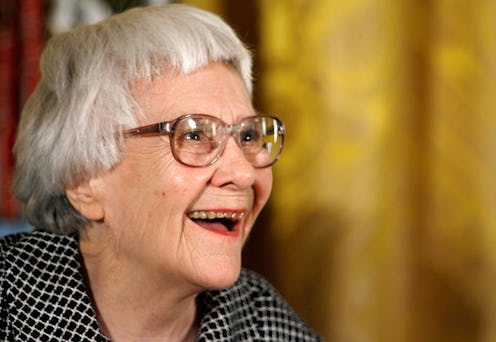Books
Harper Lee's 5 Most Insightful Quotes
Happy birthday, Harper Lee! The oft-celebrated, rarely public author turns 88 on Monday, and we'll be toasting her all day long. Lee, the author of the Pulitzer Prize-winning, 7th grader-humanizing novel To Kill a Mockingbird , worked on a few projects after her immensely successful first book but did not complete them. Since the book's publication in 1961, Lee has remained one of the most enigmatic and shy authors, declining to speak when presented with awards and honors. She currently resides in an assisted living facility in her hometown of Monroeville, Ala. (which is believed to be the inspiration for her novel's fictional setting of Maycomb, Ala.).
Mockingbird paved the way for contemporary American fiction writers, and the characters Lee created are the kind that forever color the way readers see the world. Let's review moments where Lee's brilliance shines, both in her classic novel and in the few times she's made public her thoughts.
"Weeping for Anna Karenina and being terrified by Hannibal Lecter, entering the heart of darkness with Mistah Kurtz, having Holden Caulfield ring you up — some things should happen on soft pages, not cold metal."
—from a 2006 letter to Oprah
"I wanted you to see what real courage is, instead of getting the idea that courage is a man with a gun in his hand. It's when you know you're licked before you begin, but you begin anyway and see it through no matter what. You rarely win, but sometimes you do."
—To Kill a Mockingbird
"Any writer worth his salt writes to please himself ... It's a self-exploratory operation that is endless. An exorcism of not necessarily his demon, but of his divine discontent."
—from a 1964 interview
"As you grow up, always tell the truth, do no harm to others, and don't think you are the most important being on earth."
—from a 2006 letter to an 8-year-old boy
"...man's capacity to love is measured by his degree of freedom from the drives that turn inward upon him. As one holds down a cork to the bottom of a stream, so may love be imprisoned by self: remove self, and love rises to the surface of man's being."
—from "Love — In Other Words", published in Vogue in 1961
